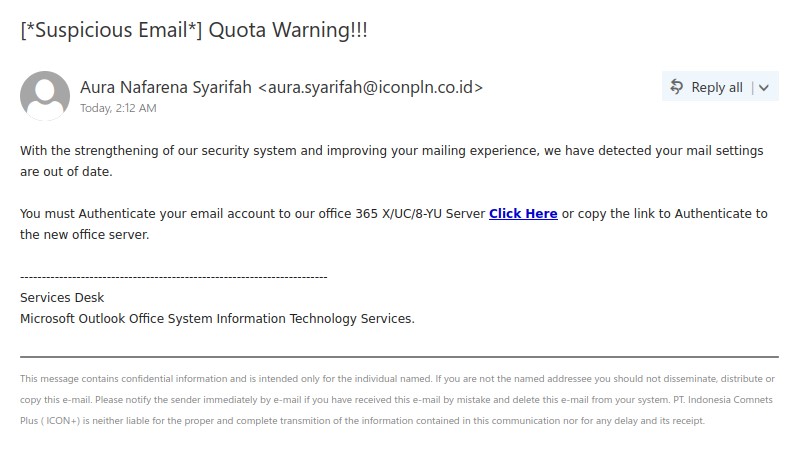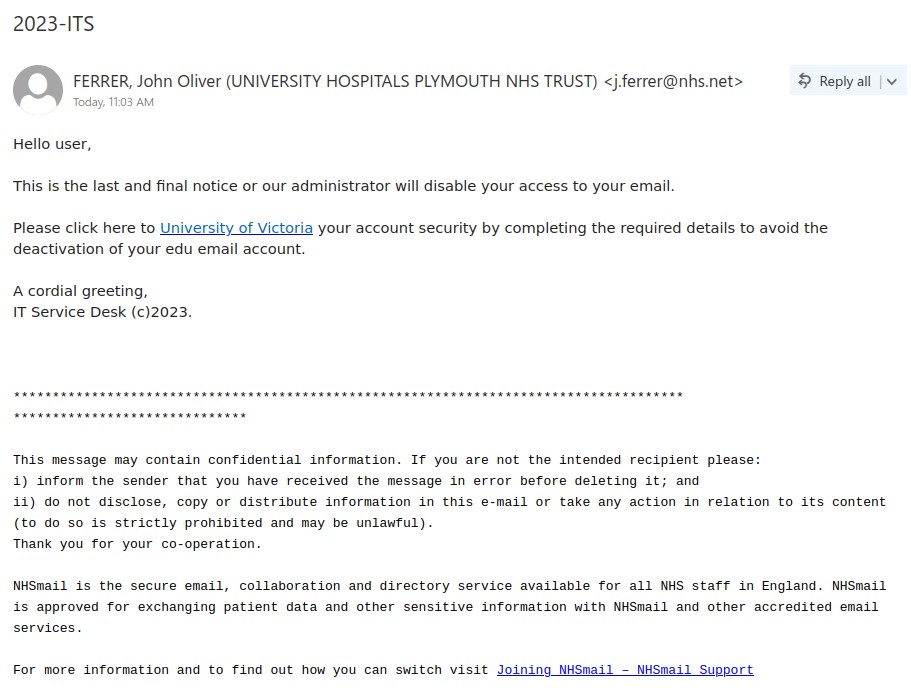This phish is pretending to be coming from Microsoft office but there are red flags that suggest otherwise. The sender email domain is not Microsoft and the link given is also not hosted on Microsoft domain. Other warning signs are no salutation, generic signature and most of all the subject itself gives warning.
Always be on the look out for warning signs and never be in hurry to take actions suggested in the email. Whenever in doubt please contact helpdesk for advise.





